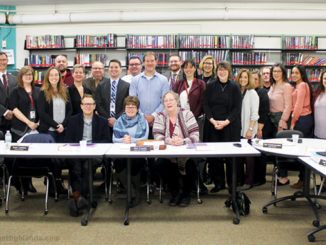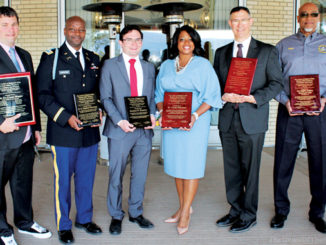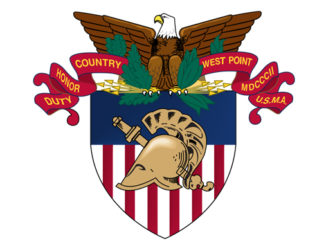Meeting about sharing services soon
A military installation is known as a ‘garrison’.
While West Point is the home of the U.S. Military Academy, for which it is most well known, West Point, like any other military installation is a garrison.
At West Point, there is a superintendent of the military academy. He, Lt. Gen. Darryl Williams, commands the academy. As well there is a ‘garrison commander’, Col. Harry Marson. He, in his own terms, is like the mayor of West Point, running operations like the buildings and grounds, the water and sewer system, youth services, policing, etc.
That said, Col. Marson has spent much of his first year with West Point leadership thinking about how the garrison at West Point could work better with other local municipalities …. Highland Falls, the Town of Highlands, other villages and towns, and even Orange County and New York State.
He may have come up with a way.
Marson and his staff, including Deputy Garrison Commander Tom Cowan and Jack Crance (Resources Management), are preparing to host a summit next week called a Needs and Capabilities Conference (NCC). This meeting, which they hope many representatives of the municipalities surrounding West Point will attend, is to talk about how West Point can join forces with the municipalities to save money on daily, annual and even seasonal expenses.
In a recent letter to local leaders, including mayors and supervisors, and state and federal representatives from this area, Marson wrote this:
“West Point has a strong desire to build stronger and closer ties to your community. In that effort I have been aggressively looking for ways to build and increase this relationship and improve the way we do business for the benefit of both our communities in that effort.”
What he wants to do is develop Intergovernmental Support Agreements (IGSAs) at West Point.
It’s a congressionally-approved program that involves federal, state and local governments forming mutually beneficial partnerships to “increase efficiency and save money, benefitting both parties”.
For instance: what if West Point teamed up with Highland Falls to get roads paved? Instead of the village contracting for a firm to pave 10 roads in Highland Falls, they contracted for a firm to pave 10 roads in Highland Falls, plus 40 roads in West Point. Ideally, both Highland Falls and West Point would save money, because with more work, the cost charged by a contractor typically goes down.
But the catch is, Highland Falls would have to come up with a plan to coordinate that road paving, and take over the management of it. West Point would pay Highland Falls to oversee this effort.
West Point is not looking to cut any jobs on post — in fact, Cowan said, they’re absolutely banned from doing that in creating these IGSAs.
As well, it can’t just benefit one of the municipalities in the agreement — it must be mutually beneficial.
The idea has been in place since 2013 in other areas of the country. Most, Cowan said, are finding that the were able to save in the area of 30 percent on expenses by partnering with local municipalities. Some of those municipalities have been able to take on projects themselves — i.e. civilian highway departments cutting grass on military installations — and thus increased their local workforce.
“West Point has numerous services we do here that I believe can be done better by your community,” Marson said. “Initially, the areas I would like to explore are: refuse collection, operating and maintaining the transfer station, fire hose testing, diesel fuel delivery for generators, sampling unknown liquids and solids, wastewater analysis, propane delivery, on and off-post grass cutting, wheel leader rental, portable toilet rental and paving.”
When Marson and his staff host the NCC next week, they are hoping some good discussions take place. Should other agencies be as excited about the plan as Marson is, work could begin nearly immediately to begin planning for the combined operations, although in all of the areas the garrison currently has contracts, they must wait for those contracts to end before they can create an IGSA with a municipality.
“Those areas that I suggested above equal about $36.5 million,” Marson said. “We at West Point would rather see that money go to the local communities. We’ve seen this succeed in other parts of the country. I think it’s time we tried it here.”



